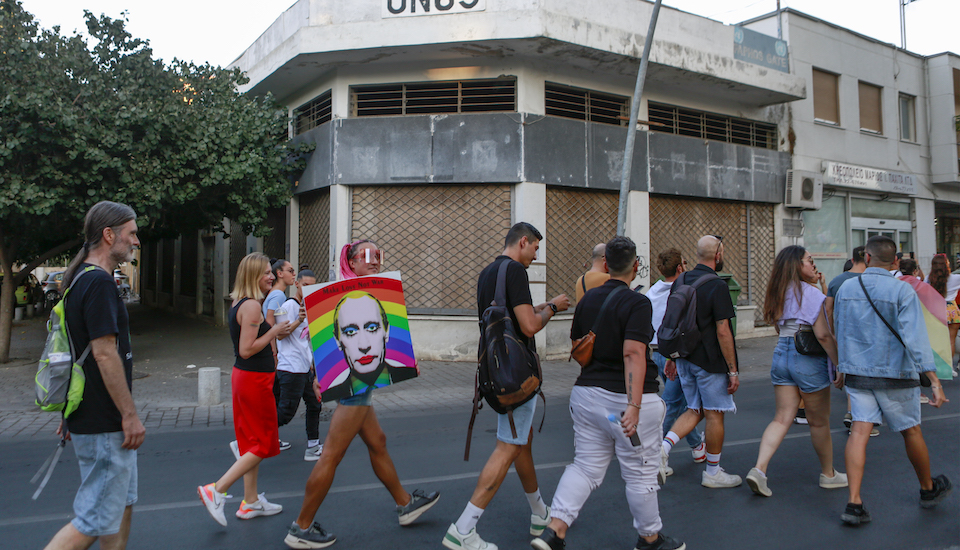Comparisons between the disturbances in London and other cities last week should not be overplayed argues Ted Cantle CBE who led a major review of the riots of the early 1980s.
Views about the London riots (and those in other cities) seem to divide between those who see the cause as one of ‘basic criminality’ and those that are searching for a deeper meaning in which people have been motivated by some form of political or economic alienation. And rather predictably this divides between those on the left ant those on the right.
It is difficult to make a connection between these riots and those of the past. The riots in the 1980s revolved around the black community who had experienced disadvantage, discrimination and harsh policing over many years. The riots ten years ago in Bradford, Burnley and Oldham had also been simmering for some time with little understanding between Asian and white communities who both felt that the other were getting a better deal. Both these previous riots had a racial element and both could be linked to disadvantage.
By contrast, there is no doubt that a large measure of the present activity - it can hardly be called a ‘riot’ where it is simple looting and vandalism - is driven by opportunistic theft with many young people, sometimes supported by elders and even their parents, grabbing what they can. Some may also be driven by the thrill of arson and vandalism, just to relieve the boredom and create some excitement. A teacher friend of mine said that it reminded her of the shout of ‘fight, fight, fight!’ that goes up in the playground before everyone piles in.
The link with poverty and deprivation also seems somewhat tenuous. True, many of the areas involved are poor – Tottenham, Handsworth, Toxteth, St Paul’s, Brixton - all have form in this respect. They also have a significant ethnic minority population, which has given the BNP the opportunity to link the upheavals to ‘race’. But the areas involved have included more affluent areas and the people involved are not in any way limited to minorities. Black people feature heavily in the areas which are dominated by minorities and white people are most likely to be charged in the white communities. The evidence from the early court appearances is that the individuals are not necessarily jobless, or from poorer communities.
Any semblance of political justification also seems to be post hoc and of no real value. There is no evidence of political activity, no protests movements, no political demands; not even slogans. It is mostly the commentators, rather than those involved, that are trying to find some link to government policies.
Perhaps the more interesting question is about why so many people are willing to grasp the instant gratification of criminal opportunities, have so little regard for their communities and businesses and are prepared to battle with the police and willing to risk a criminal record which will stay with them for a very long time? Has greed and irresponsibility become endemic - the bankers bonuses, the MPs fiddling their expenses, the burgeoning debts, the press hacking scandal - and is this is now an ‘our turn’ casual mentality which pervades ordinary communities? And yes perhaps with the ‘have nots’ being most tempted, to join in and take advantage of the situation.
At a micro level, it is also possible that the inculcation of difference between right and wrong is less evident, with parents outsourcing their responsibilities to dawn to dusk schools, Sure Start centres and other extensive internet and virtual reference groups. The abusive language, casual drunkenness and loutish behaviour seems to go unchecked, in contrast to the ‘zero tolerance’ approach, evident in some other countries. Is it that the minor indiscretions can easily escalate and cross the boundary into more serious crime?
Governments cannot establish ‘values’, but they do need to think about how communities build social capital, how the cohesion of communities is impacted by their policies and how local institutions can enjoy trust and engender respect for basic norms of decent behaviour. Clearly, the formula is not right for our present challenges, but in the aftermath of these events we have an opportunity to make the change.
Professor Ted Cantle CBE is Chair of the Institute of Community Cohesion (iCoCo). In August 2001, he was appointed by the Home Secretary to lead the review on the causes of the summer disturbances in a number of northern towns and cities.
Related articles
-
Worlds apart
Frank Gaffikin
We are at an inflexion point as a species with an increasing need for collaborative responses to the global crises we face.
-
Why aren't consumer durables durable?
Moray MacPhail
A tale of two toasters demonstrates the trade-offs that need to be considered when we're thinking about the long-term costs of how and what we consume.
-
You talked, we listened
Mike Thatcher
The RSA responds to feedback on the Journal from over 2,000 Fellows who completed a recent reader survey.



Join the discussion
Comments
Please login to post a comment or reply
Don't have an account? Click here to register.
This comparison seems to be targetet at better understanding the causes of the current riot.
If the riots were grounded in racial conflict,increased intercultural communication efforts might be the key reaktion. If the riots were a direct result of poverty, improvements in social welfare might be an adequate response. If a decay of values and the loss of communal cohesion were at the core, yet other and much more complex measures should be chosen.
It is highly likely that - now as we are posting messages - the actual conclusion that policymakers will draw from these riots will NOT be the highest leverage action possible.
Understanding is NOT merely of academic value!
Why would we want to compare riots? That may be wonderful for an academic but it has no practical value. Riots indicate that there are deep social problems that need to be addressed. A riot is a reaction to those problems, and those problems cause different reactions depending on the players involved. In some places they lead to wars, or suicide bombings, or insurrections, or strikes.
The only moment when people actively stop shying away from confrontation, when they give up their current situation, which is quite a bit better than the rest of the world, even for those less fortunate, is when they feel that if they don't do anything they're going to lose much much more!
It started with the spring revolutions, followed by the hackers, and now more and more protests.
As the corporate and political world are getting an ever tightening grasp on our freedoms and the media, the common people are getting restless as it gets ever clearer they're getting the short end of the stick.
Change is going to have to happen, or sooner or later the powder keg is going to explode, as it has during the french Revolution. A time when even though scientific and social breakthroughs were being made which improved the lives of many, the grasp on the downtrodden was getting harder to ignore.
As it has during the spring revolutions, or the declaration of independence...
With all due respect, I find this analysis highly fatuous. First, how measured can this article be when it is titled as London 'Riots' 2011. Right there, any semblance of unbias is out of the window. There is ALWAYS a large economic and socio-politcal factor to 'riots'. The author's mistake is that economic factors are always necessarily the domain of the 'downtrodden'. This is not always true as we see in these events (I will not presumptuously call these 'riots' conversely 'a popular uprising'). The unemployed and those 'higher' on socioeconomic ladder may also be unhappy about the severe tilt of wealth away from them to the few super-rich percentiles. Additionally, one can always find 'non-political and non-social' rationale in any similar event regardless of venue or country. In that context, I find the author digging really deep to conjure a series of rationale that disregards the societal aspects of these events. And finally, although as the author suggests, governments should not ACTIVELY establish 'values', their behavior PASSIVELY imply values that do trickle down to society for better or worse. A governments contradictory set of domestic and foreign policies or, in this case, the governments quickness in labelling people as hooligans and riotors and threathening severe repercussion to their FAMILIES conveys a punitive, cruel, and cycnical attitude that a society will absorb and play out in future 'events'.